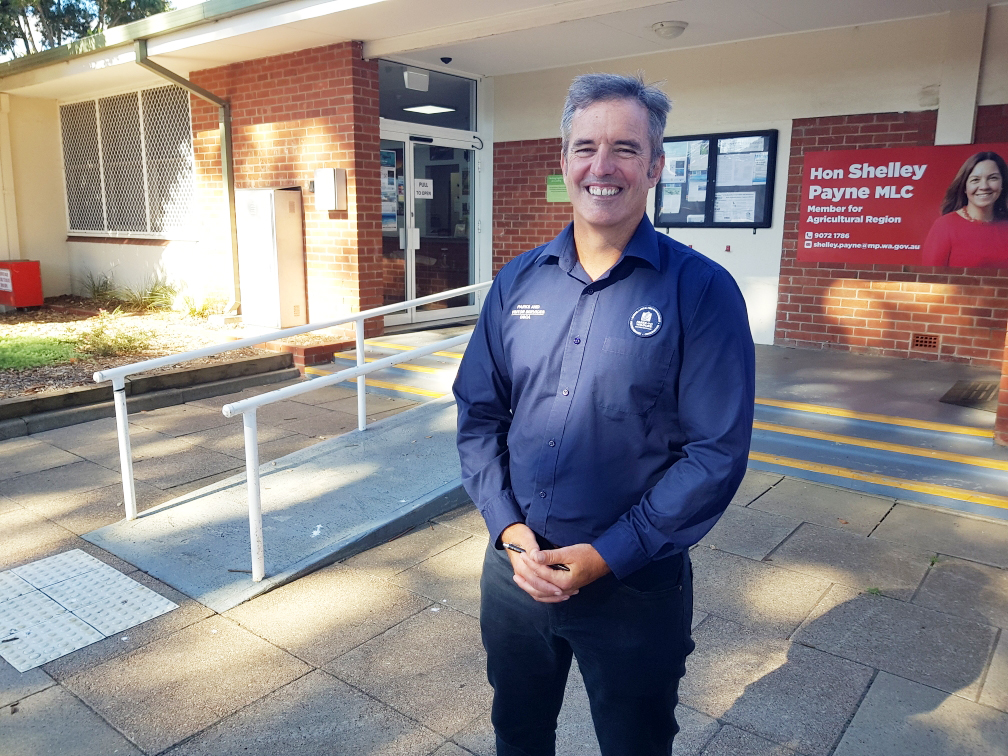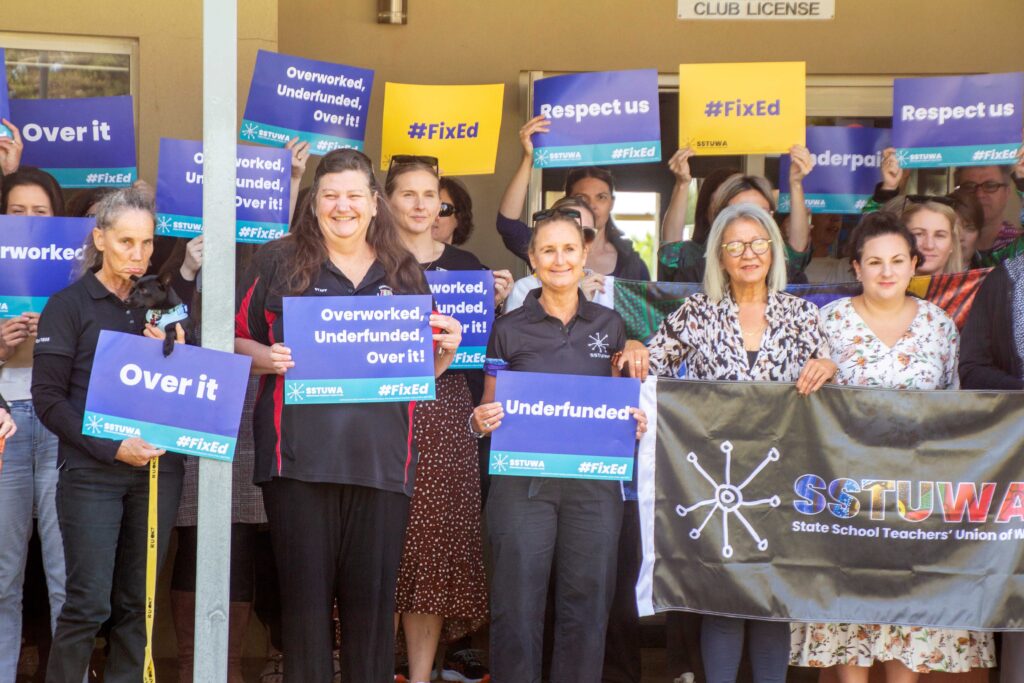DBCA representative Luke Bentley, WA Environment minister Reece Whitby and Shelley Payne MLC announce the new South Coast Marine Park with Shelley Payne MLC at Esperance DBCA offices on Tuesday.
Anglers, fishing professionals and tourists have two years to adjust to the requirements of the new South Coast Marine Park.
Just 90 minutes before the Melbourne Cup, WA Environment minister Reece Whitby announced released the official zoning scheme for the South Coast Marine Park to coincide with the park’s formal creation at DBCA Esperance offices.
Mr Whitby said the park’s management plan struck a balance between recreation, commercial use, and conservation.
“Under the final zoning scheme, locals and visitors will be able to continue fishing along 85 per cent of the coast from Bremer Bay to the South Australian border, and in 80 per cent of park waters,” he said.
“Sanctuary zones will protect 20 per cent of the most biodiverse areas within the park, including breeding areas for threatened species, such as Australian sea lions.”

Mr Whitby said the Government received a record 22,000 submissions during the public comment period.

“An overwhelming majority of respondents supported the creation of the marine park, with those comments helping improve the marine park’s draft management plans,” he said.
“Final management plans for the South Coast Marine Park will be released later this month with the park’s zoning scheme to take legal effect from late-2026.”
Angler’s umbrella group Recfishwest chief executive Andrew Rowland said the plan incorporated 80 per cent of its key recommendations.
“The result means fishers and future generations will be able to continue enjoy fishing in cherished spots which were closed under original marine park plans,” Dr Rowland said.
“Fishing is central to the South Coast way of life and this more balanced outcome ensures South Coast fishers and future generations can continue to enjoy fishing in cherished spots like Trigelow, Warrenup, Poison Creek, Thistle Cove and Kennedys.
“Recfishwest’s submission to the Government reflected the fishing community’s feedback and emphasised the need to rethink many of the proposed no-fishing zones.”

Member for Roe Peter Rundle said the announcement was yet another example of the Cook Government’s disregard for the community.
“The Cook Government’s final zoning plans for the South Coast Marine Park, set to take effect in less than two years, will ban fishing in 20 percent of the park,” he said.
“These include iconic areas like Cape Le Grand National Park, Woody Island, and the beaches near Duke of Orleans – popular and long-established spots for recreational fishing that have now been arbitrarily declared off-limits.
“This plan severely limits local recreational and commercial fishing access, and the Government has yet to reveal what, if any, benefit will be provided to the community or local industry, whose livelihoods and lifestyles will be impacted by these changes.”
Oceans for Everyone chair Neil Pechar said Minister Whitby and the WA government were pressing ahead, ignoring the will of the people they were supposed to represent in favour of international lobby interests, such as the Pew Foundation.
“Over half of the voters in the affected areas oppose this park,” he said.
“Knowing this, his decision to proceed is not just undemocratic—it’s a direct disregard for the communities affected.”

Pew Charitable Trust campaigner Talitha Wolfe welcomed the WA Government’s creation of the South Coast Marine Park, especially the network of marine sanctuary areas and the joint management arrangements with Traditional Owners.
“We are concerned, however, that critical fish breeding grounds close to shore do not have enough sanctuary protection,” she said.
“Nor do the waters where endangered southern right whales raise their young, and where endangered Australian sea lions feed, breed and rest.”
WA Fishing Industry Council chief executive Melissa Haslam said it was a day of “mixed emotions”.
“The final plans show removal of Point Hood and Kepa Kurl sanctuaries, along with reductions and other changes to critical fishing areas within Cape Pasley, Eastern Group Islands, Salisbury-Cooper Islands, Cape Le Grand and Eucla sanctuary zones,” she said.
“It is hoped the changes will support the viability of purse seine, abalone, crustacean, octopus and gillnet and longline fisheries on the south coast.”



